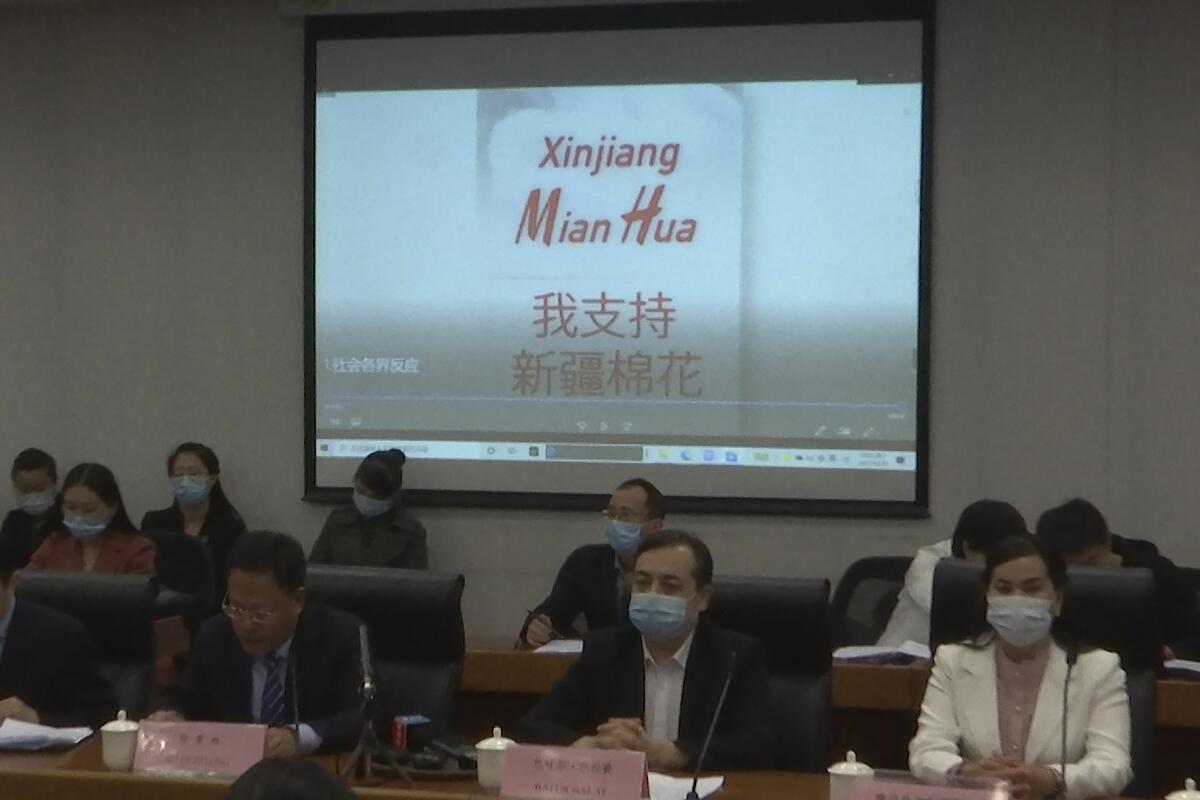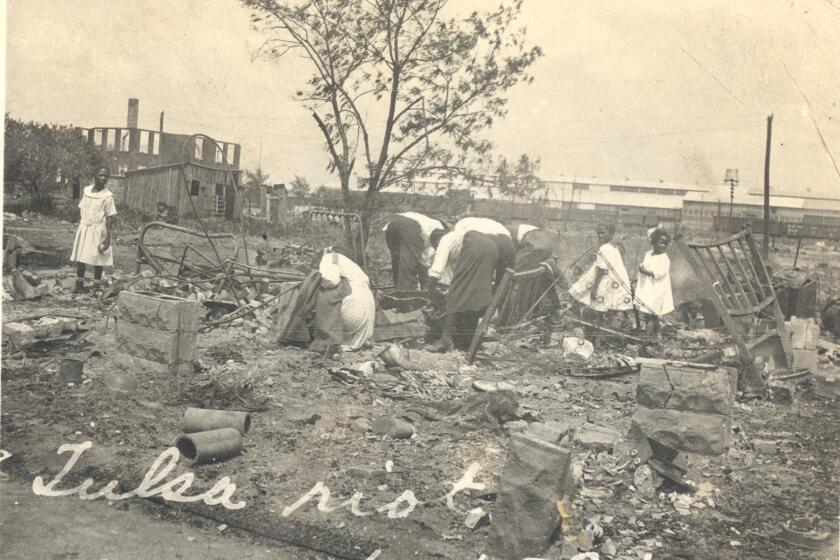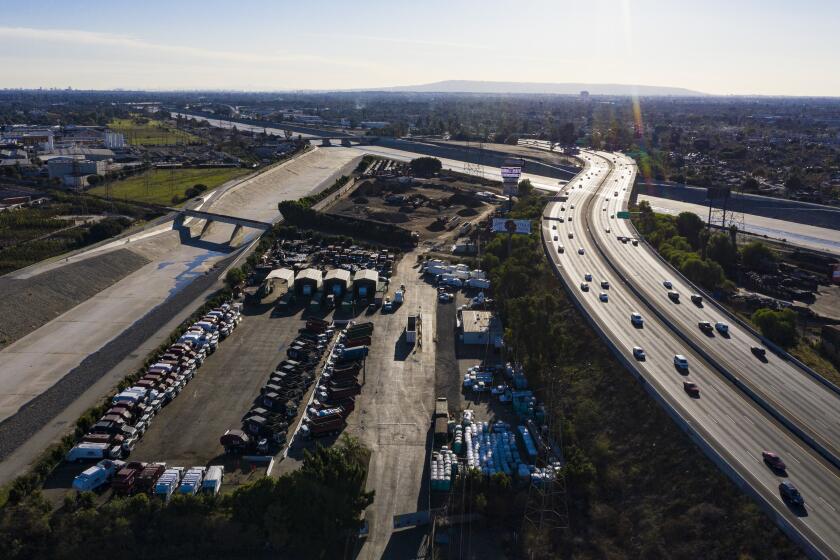Editorial: Clothing giants: Don’t buy cotton from Chinese Muslim forced labor

- Share via
One of the inherent problems with a globalized economy is the globalization of social and political concerns. And few situations in recent years have posed as big a challenge as China, with its abhorrent human rights abuses and its crucial role in international supply chains as the exporter of pretty much everything — from raw materials such as cotton to finished products such as computers and solar panels.
As part of a decades-long campaign to subjugate the Turkic-speaking and predominately Muslim ethnic Uyghurs in the northwestern region of Xinjiang, China forced about 8 million people over six years into reeducation camps. There, according to Western nations and human rights advocates, they are subjected to torture (including rape) and indoctrination into Communist Party teachings, forced to renounce Islam and learn Mandarin, and required to declare their fealty to the Chinese government. The Trump administration appropriately described China’s efforts as genocide, a conclusion Joe Biden reached before he took office as president.
For the record:
1:04 p.m. June 1, 2021This editorial incorrectly states that the Chinese government “forced about 8 million people over six years into reeducation camps.” According to The Guardian newspaper, a Chinese government report estimated that more than more than 8 million people underwent “vocational training” during that period, an unspecified number of whom were sent to reeducation camps.
The Times Editorial Board examines the reckoning of the last year and considers what it means for policing and protest in Los Angeles and elsewhere.
The Chinese government has also compelled Uyghurs to pick cotton. It’s a crop that’s harvested in numerous countries through the use of forced labor — slavery, in its rawest form. Sadly, that practice taints many global products.
By one estimate, half a million Uyghurs and other Muslim minorities have been forced to work in the region’s vast cotton fields, which yield one-fifth of the world’s cotton. The Trump administration in January barred imports of cotton and tomatoes — another large Xinjiang crop — from China unless the importers could verify that the goods had not been produced through forced labor; it’s unclear how effective that ban has been, given how hard it is to trace the source of cotton.
In part to adhere to the ban, many international businesses have tried to keep cotton from Xinjiang from entering their supply chain, highlighting their concerns and efforts in public declarations that, unsurprisingly, have drawn the ire of China.
How so? In recent weeks young Chinese netizens have taken to social media to condemn the fashion outlet H&M over its “insulting” denunciations of forced labor in China, and the government has in effect disappeared H&M from the marketplace, including removing its store locations from ride-hailing apps and blocking access to H&M products through online shopping sites.
The backlash has spread to other brands that are part of the Better Cotton Initiative, a nonprofit supporting sustainable cotton production that stopped assessing Xinjiang cotton after it was denied access by the Chinese government.
As a result, many of the brands have unfortunately backed down, removing statements questioning China’s Xinjiang policies from their websites and issuing other statements to appease critics in China. We understand that running afoul of the Chinese government can have a significant effect on businesses, so the ones that stand up to China’s human rights violations should be applauded for doing the right thing, and others should be encouraged to join them. None should back down as long as the violations persist.
Los Angeles leaders should give up on freeway widenings once and for all.
Of course, opposition to China’s human rights abuses — and Uyghurs have hardly been the only victims — should involve more than just the business world. Governments around the world have condemned the policies, and there are increasing calls for a boycott of the 2022 Winter Olympics in China on the grounds that an international sporting competition meant to bring countries together can’t ignore human suffering at the hands of the host nation.
The broader problem is that the world has not been able to come up with a successful strategy to prod China to change its behavior. Companies and consumers who decline to buy its slave-produced cotton at least refuse to reward the practice — our nation’s own history of slave-produced cotton should make us particularly sensitive on this point — and countries, athletes and fans who boycott the Olympics might embarrass the Chinese government.
Yet it’s hard to embarrass a regime that feels no shame. China often responds to criticism of its policies and actions by denying the underlying reality; here, it contends that a million Uyghurs a year in reeducation camps were going through vocational training to improve their job prospects. Then it goes on the offensive, in this case by making it harder for global brands to reach its 1.4 billion consumers.
The global brands should stand firm, and global consumers should stand with them by shunning cotton and other goods produced with forced labor.
More to Read
A cure for the common opinion
Get thought-provoking perspectives with our weekly newsletter.
You may occasionally receive promotional content from the Los Angeles Times.












